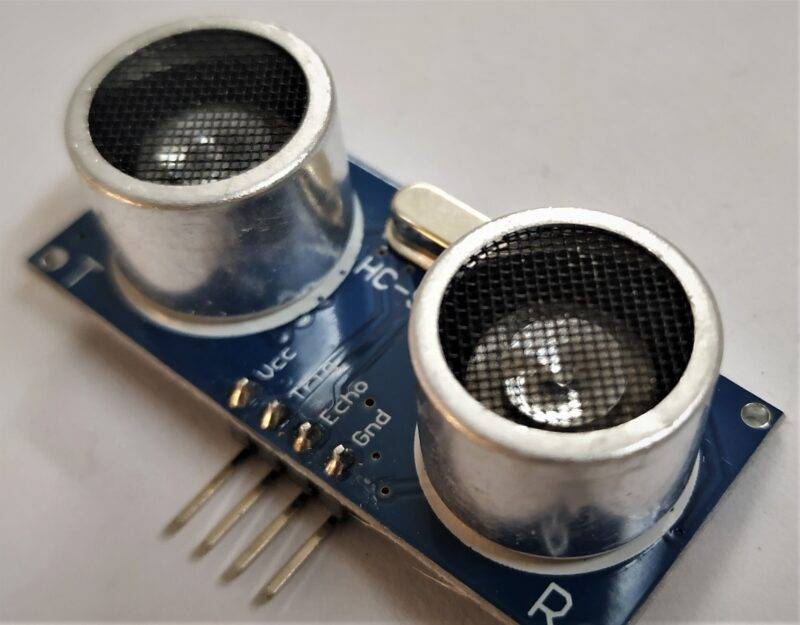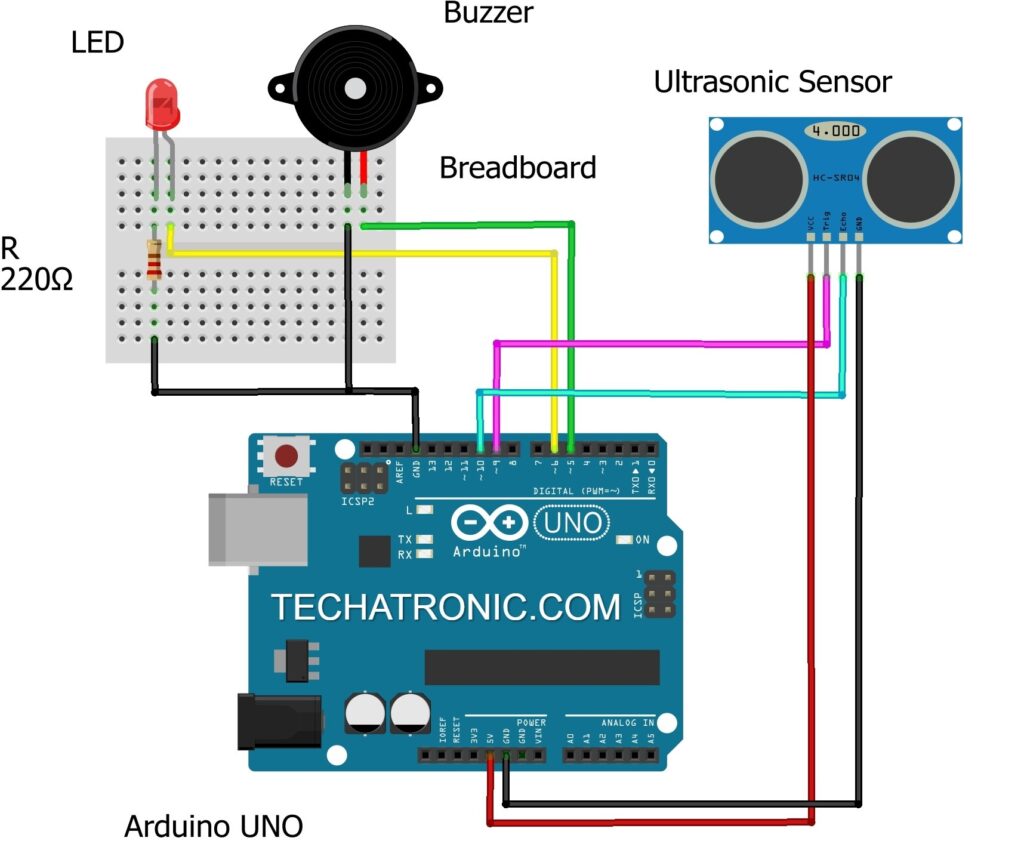Introduction
Hey Guys, welcome back to Electronation Pakistan. In this article, we will make a Smart Blind Stick Using Arduino and Ultrasonic Sensor.
Blind people have to face many challenges in their lives, one of them is finding their way on the streets. On the streets, some so many vehicles and obstacles may block their way and also injure them.

So keeping this problem in mind we developed a Smart blind stick that scans for the obstacles in front of it with the help of an ultrasonic sensor.
For this project,
we use an HC-SR04 Ultrasonic sensor and Arduino UNO board. If you aren’t familiar with how the ultrasonic sensor works with Arduino, please check it out first. Complete the circuit then upload the given code to the Arduino. You can present this project as your Arduino mini-project.

Working on the Smart Blind Stick
- The Smart Blind Stick scans the path in front of it with the help of an HC-SR04 Ultrasonic sensor.
- Whenever the sensor detects any object in its path the buzzer starts beeping and also at the same time the LED turns on.
- The blind person can hear the beeping of the buzzer and manage to change the way. In this way, the person can easily find his way without getting injured.
- This smart stick works in the same way as the Ultrasonic range finder did. You can also see the real-time values of the distance in cm on the Arduino serial monitor.
- Once the circuit is ready for this Arduino mini-project tie the whole set-up to a stick using zip ties.
Simulation

Components Required
- Arduino UNO
- USB cable for uploading the code
- Jumper wires
- Breadboard
- HC-SR04 ultrasonic sensor
- Buzzer
- LED with a 220 ohm resistor
- DC batteries
Circuit diagram for the Project

Connection Diagram
| Arduino UNO | Ultrasonic Sensor | |
| ( +5V ) | VCC | |
| GND | GND | |
| D9 Pin | Trig Pin | |
| D10 Pin | Echo Pin | |
| Arduino UNO | Buzzer | |
| D5 Pin | Positive Terminal | |
| GND | Negative Terminal | |
| Arduino UNO | LED | 220 Ohm Resistor |
| D6 Pin | Anode Pin | |
| Cathode Pin | Terminal 1 | |
| GND | Terminal 2 |
- Please make the connections according to the given Smart blind stick circuit diagram.
- Attach the 5-volts and GND pins of the Arduino to the VCC and GND pins of the ultrasonic sensor.
- Connect the TRIG and ECHO pins of the ultrasonic sensor with the digital-9 and digital-10 pins of the Arduino.
- Join the positive and negative wire of the buzzer with the digital-5 and GND pins of the Arduino.
- Attach the positive leg of the LED with the digital-6 pin of the Arduino and the negative leg of the LED with the GND pin of the Arduino through a 220-ohm resistor.
- You can use a breadboard for making common connections. Power the Arduino board using DC batteries.

Code for the Project
NOTE: You have to upload the given code to the Arduino.
const int trigPin = 9;
const int echoPin = 10;
long duration;
int distanceCm, distanceInch;
void setup()
{
Serial.begin(9600);
pinMode(trigPin, OUTPUT);
pinMode(echoPin, INPUT);
pinMode(6, OUTPUT); // Connect LED Pin D6
pinMode(5, OUTPUT); // Connect Buzzer Pin D5
}
void loop()
{
digitalWrite(trigPin, LOW);
delayMicroseconds(2);
digitalWrite(trigPin, HIGH);
delayMicroseconds(10);
digitalWrite(trigPin, LOW);
duration = pulseIn(echoPin, HIGH);
distanceCm= duration*0.034/2;
distanceInch = duration*0.0133/2;
Serial.println("Distance: ");
Serial.println(distanceCm);
delay (100);
// See the Ultrasonic Sensor Value in Serial Monitor
if(distanceCm < 25) // You can Change the value
{
digitalWrite(5, HIGH); // Buzzer ON
digitalWrite(6, HIGH); // LED ON
}
else
{
digitalWrite(5,LOW); // Buzzer OFF
digitalWrite(6,LOW); // LED OFF
}
}
Now you open the serial monitor to read the sensor value


The Smart Blind Stick images


